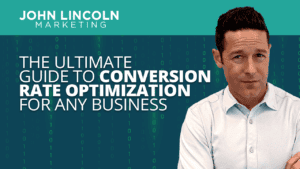
Top 16 Questions to Ask a PPC Company in 2024
In 2024, choosing the right PPC company is not just about spending your advertising budget. You want to make every cent count towards your business
As a digital marketer, you can use your analytics tools to answer questions like:
And so on.
But once you get those numbers, how do you determine if they’re “good”?
As in: how do you know if a 1.3% conversion rate means you’re doing some really great marketing?
One way to answer that question is with benchmarks.
In this guide, I’ll explain benchmark marketing.
Simply put: benchmarking is the process of looking at where you are versus your competitors.
To continue with the example above, if you’ve got a 1.3% conversion rate but your competitors average a 1.7% conversion rate then no, you’re not doing some really great digital marketing.
Your competitors are getting more conversions.
Armed with that info, you know that you need to make adjustments.
But you won’t just look at conversion rate when doing benchmarking. You’ll look at several metrics.
Those metrics are often referred to as key performance indicators. Or KPIs for short.
So in addition to looking at the conversion rate, you’ll also need to look at items that might not be exclusively related to digital marketing.
For example: how much does it cost you to acquire one customer? Once again, you’ll want to compare that number with how much it costs your competitors, on average, to acquire one customer.
The kind of benchmarking I covered in the previous section is called Competitive Benchmarking. It can be broken down into three categories:
There’s also another kind of benchmarking: Industry Benchmarking.
That’s when you use industry averages to optimize your own marketing efforts.
For example, if you’re selling a gaming app in the app store, you’d want to know how your KPIs stack up against other gaming apps.
But you wouldn’t really care about how your KPIs stack up against the Hertz app because that app isn’t in the gaming space.
Why Is Benchmarking So Important?
Benchmark marketing helps you answer one simple question: how am I doing?
You might generate a profit with your current marketing strategy. But can you earn a higher profit?
Can you improve your margins? Can you reduce your acquisition costs?
If other companies in your space are doing that, then the answer is yes. You can do that, too.
But even better than that: when you do some Strategic or Process Benchmarking, you get ideas that will help you improve those KPIs you look at with Performance Benchmarking.
For example, if you find that a competitor is targeting a specific demographic with online ads, then you should target the same demographic as well.
With better ads.
Alternatively, if you find that a competitor is using a tool to streamline business processes and save money, then you should use that tool as well.
Bottom line: you can learn a lot from your competitors. Let education begin with benchmarking.
Now that I’ve covered the definition and the importance of benchmarking, I’ll explain how to get started.
One of my favorite ways is with a (free) tool that you probably already have: Google Analytics.
Just click on the Benchmarking link on the left-hand sidebar and start gathering info. You can view benchmarking data by industry or website size.
Additionally, you can filter the data by channel, location, new sessions, returning sessions, total sessions, and more.
Then there’s SimilarWeb. Just plug in your competitors and check out what they’re doing.
SEMRush is another (not free) tool that offers some outstanding competitive data.
Pathmatics will give you competitive data as well. But it tends to focus on paid media so keep that in mind as you’re considering different solutions.
If you’re looking to do analysis when it comes to email marketing, you’ll likely find that your email distribution tool offers benchmarking. Be sure to check out those reports.
Okay. Now I’ll go over ways that you can scale your digital marketing with the assistance of benchmarking.
For starters, always optimize your website.
The process of improving your website never ends. You’ll need to reach out to your development team constantly to make it more user-friendly, reduce its load times, and improve onsite SEO.
Here’s where benchmarking can help again. Just visit Google’s PageSpeed Insights page. Plug in the URL of your competitor and check the report.
If that report shows stats better than those on your own website, then you’ve got some work to do. Get busy.
Next, ask your customers how you can improve.
And remember: negative feedback can be your best friend. That’s because it helps you set things right.
Do some Process Benchmarking for this one. Find out how your competitors are gathering customer feedback. Maybe they’re using a survey tool. Maybe they’ve reached out to marketing agencies to conduct polls.
Also, take advantage of the free marketing offered by social media.
Once again: look at what your competitors are doing on social media. You might get some inspiration for how you can market your brand without just copying them.
You’ll find that some brands effectively use humor on social media. Don’t go that route unless you know you’re funny.
Other companies offer promos and promo codes on social media. That’s an easier example to follow.
Just make sure you stick to what works well for your industry.
Next, ramp up your email marketing game.
Visit your competitor’s website. Find out how that company is gathering email addresses.
Maybe the competitor is offering a freebie in exchange for an email address. If so, what kind of freebie? Is it a how-to guide or a product that the customer receives in the mail?
And feel free to subscribe to the competitor’s email list and check out the content of the emails you receive. Again, you might get some inspiration.
Finally, develop connections with brand advocates.
Who’s endorsing your competitor’s product? Go find someone who can offset that endorsement by endorsing your product.
Remember: in many ways, your customers are just like you. That is, they’ll look at reviews before they decide to make a purchase.
And they’ll want social proof as well.
You can give them both with a strong endorsement.
Make sure you know your current KPIs. Also: make sure you know your competitor’s KPIs to the best of your ability.
But beyond just looking at a single competitor, find out where you stand with those KPIs by looking at industry averages.
Then, fill in any gaps.
Also: be sure to look at Process and Strategic Benchmarking as well.
If you haven’t yet done any benchmarking, why not the ball rolling today?
Welcome to John Lincoln’s personal website. You can learn about John Lincoln’s books, films, book him to speak and contact him. John is directly associated with many of the businesses mentioned on this website and freely discloses this information.

John Lincoln is CEO of Ignite Visibility, one of the top digital marketing agencies in the nation. Ignite Visibility is a 6x Inc. 5,000 company. Ignite Visibility offers a unique digital marketing program tied directly to ROI with a focus on using SEO, social media, paid media, CRO, email and PR to achieve results. Outside of Ignite Visibility, Lincoln is a frequent speaker and author of the books Advolution, Digital Influencer and The Forecaster Method. Lincoln is consistently named one of the top digital marketers in the industry and was the recipient of the coveted Search Engine Land “Search Marketer of The Year” award. Lincoln has taught digital marketing and Web Analytics at the University of California San Diego since 2010, has been named as one of San Diego’s most admired CEO’s and a top business leader under 40. Lincoln has also made “SEO: The Movie” and “Social Media Marketing: The Movie.” His business mission is to help others through digital marketing.
Want to get in touch with John Lincoln? Click Here To Reach Out.

In 2024, choosing the right PPC company is not just about spending your advertising budget. You want to make every cent count towards your business

Whether you’re a seasoned marketer or just starting out, conversion rate optimization (CRO) is a powerful tool that can boost your sales, leads, and overall

Feeling overwhelmed by the sea of SEO companies out there? You’re not alone! Choosing the right partner is crucial for achieving your online marketing
 How to Use Lead Scoring to Boost Your Bottom Line
How to Use Lead Scoring to Boost Your Bottom Line If you’ve got a great customer relationship management (CRM) system, then it probably gives you the option to use lead